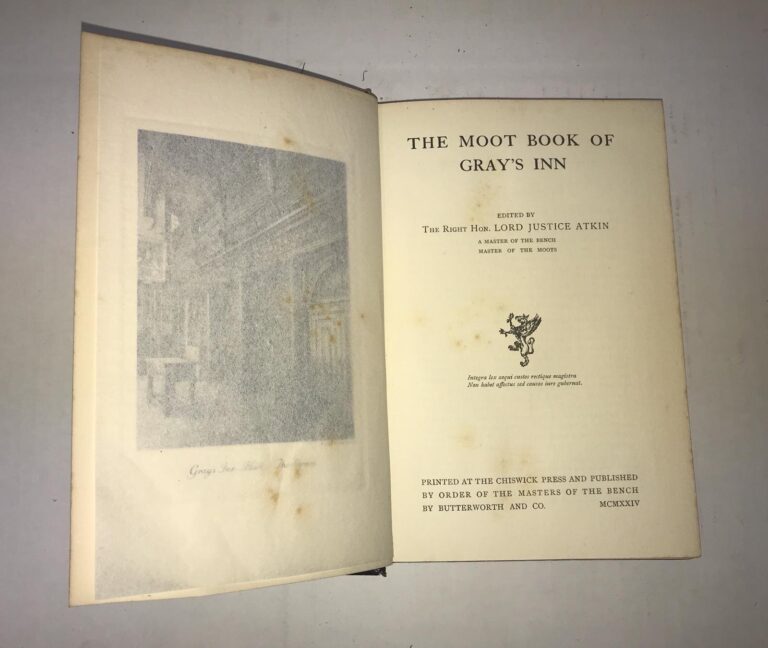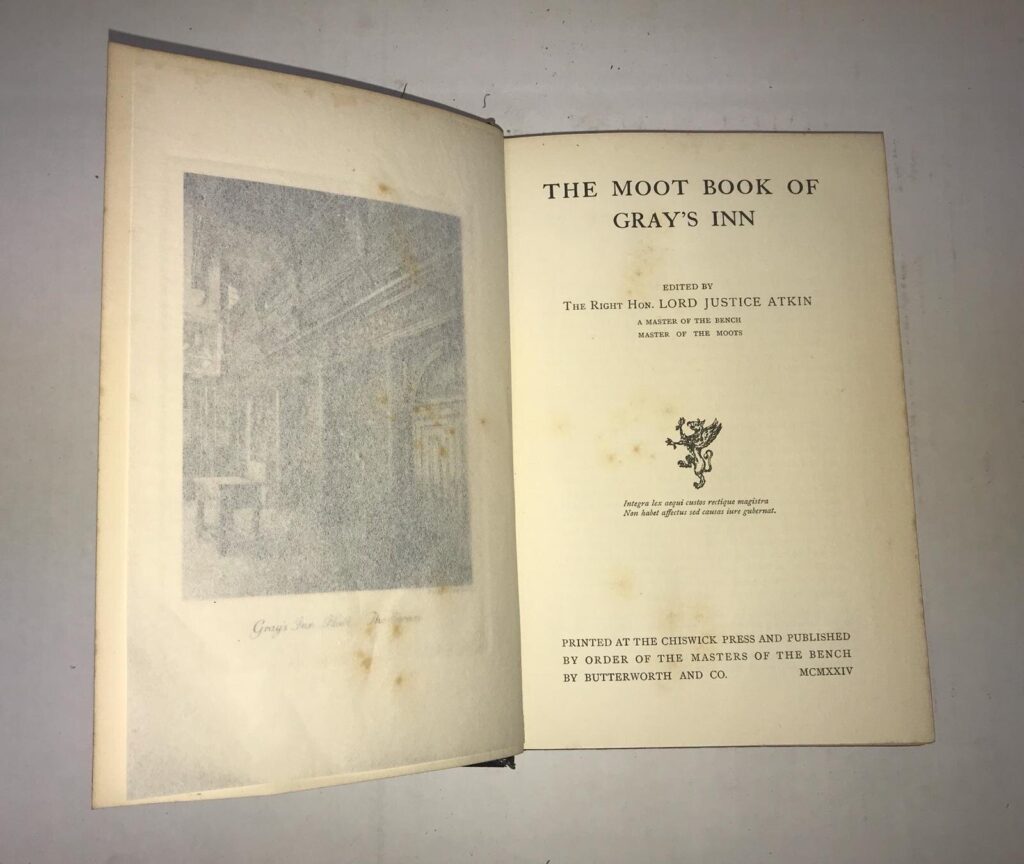Lord Justice Atkin, The Moot Book of Gray’s Inn, 1924
James Richard Atkin was a distinguished judge, who is now most famous for his ruling in Donoghue v Stevenson which shaped the modern law of negligence in the United Kingdom and in other Common Law countries like Australia. Atkin was born in Brisbane and always considered himself a Queenslander, even though his mother brought him back to her native country of Wales when he was still a young boy. He attended Oxford thanks to a scholarship and was called to the Bar via Gray’s Inn in 1891.
Gray’s Inn is one of the four historic Inns of Court in London, unchartered voluntary societies that have dominated the English legal culture since the medieval period. Indeed, they helped to create the English legal profession, as the development of both the Inns and the profession was a symbiotic process the details of which have become obscured to history. Suffice it to say that the Inns were and are an integral part of the British legal and constitutional system that was greatly admired in an Australia that considered itself to be ‘British’ in the early to mid-20th century.
Atkin served as the Master of Moots for Gray’s Inn, helping to reinvigorate the much storied ‘moot meetings’ where hypothetical cases would be argued in order to illuminate and clarify points of law for the benefit of students. These meetings are the origin of the concept of a ‘moot point’, as something that is open to debate or argument. The Moot Book is a revealing collection of the proceedings of these meetings over the fifty years from 1875 to 1924.
Menzies’s copy is an artefact of his admission as an Honorary Master of the Bench for Gray’s Inn in 1935, a tremendous honour usually reserved for Prime Ministers, and one which he excitedly noted in his diary with a full three exclamation marks. His biographer A.W. Martin describes Menzies’s first trip to England as Federal Attorney-General in 1935 as the time when his subject emotionally ‘discovered’ Britain, confirming some pre-existing biases and shaping the positive affection he maintained for the rest of his life.
The Moot Book was gifted to Menzies on his return trip in 1936 when he once again appeared before the Privy Council and had the privilege of attending a Gray’s Inn moot meeting. It is inscribed by the new Master of Moots Augustus Uthwatt (who was also Australian born, being from Ballarat), and even contains flyers advertising the moot to be held in Gray’s Inn Hall, on 22 April 1936. The book stands as testament to Menzies’s sense of history, the emotional power being connected to something as old as the Inns had over him, and how this provided him with a tangible understanding of the Burkean idea that all truly great things develop gradually.
Sign up to our newsletter
Sign up for our monthly newsletter to hear the latest news and receive information about upcoming events.



